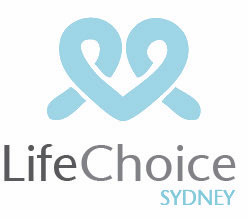Over the past year Sydney’s major universities have witnessed the emergence of several student bodies promoting intellectual discussion and philosophical debate over the major bioethical issues at a grass-roots level on campus. In an area that has long been monopolised by a philosophy that disregards the dignity of all human life from conception to natural death they are welcome additions, and they are growing.
These groups are shaking up the indifference and breaking the oppressive silence that has permeated Western culture. Here in Australia, as of this February, LifeChoice Sydney from Sydney University has been causing quite a stir on campus and in the media. The University of New South Wales this year saw the start of BEAM, BioEthics And Medicine, a secular student group comprised of medical students dedicated to developing future medical practitioners in morals, ethics and philosophy. The president Minna Bondal has said that they regularly host panels, talks and debates for the medical students to engage in and have exposure to critical ethical issues. Just recently the University of New South Wales had their own LifeChoice UNSW group established and preparations are currently underway for LifeChoice Macquarie at Macquarie University. Notre Dame University has also seen the addition of the Medicine for Life student group.
Across Sydney one cannot deny that there is a sense of change in the air. Australia has a fundamentally secular culture and for the most part has largely discouraged discussion and criticism of the values and principles assumed by the secular philosophies. LifeChoice Sydney spokesperson Isabella Whealing notes the change occurring, “There is excitement that there are grounds for legitimate discussion to occur, a willingness to listen and hear both sides of the argument concerning an area that desperately needs more attention in our secular universities”. A large amount of the support is stemming from people who aren’t pro-life but support the fact that those who are pro-life have a right to freedom of speech and to voice an opinion on the issues. Isabella pointed out that, “It is not a black and white issue. There is a lot of grey area that has been for the most part overlooked and in an argument where the ground has been largely dominated and monopolised by one opinion”.
 Interestingly the group was originally disapproved by the Clubs and Societies Committee but the decision was overturned by the University of Sydney Union Board. It was no more than an hour after the decision was made to approve LifeChoice Sydney that a staggering response poured forth. Facebook and twitter exploded with hostility, interviews were conducted and as expected, a petition on GetUp! was set up to demand the group be abolished immediately. Much of this reaction has been irrational and deeply unfair at times to the members of LifeChoice. Club President Rebecca Elias sums up, “Every student has a right to express their views but the argument that LifeChoice should be banned from campus life can only be considered antithetical to the principles of free speech and inclusivity on which the USU was founded”. But as much as the hostile responses and the unwelcome remarks have been harsh, the media attention that has been generated was a blessing in disguise. There are over a dozen national and international articles which have featured LifeChoice, in radio, online and in newspapers, allowing the wider public to know LifeChoice exist, what their purpose is and thus they have attracted more avid supporters. Jason Cebalo, LifeChoice Secretary remarked that, “Thanks are actually due to the opposition since they have managed to give us the publicity we could never have generated on our own!”
Interestingly the group was originally disapproved by the Clubs and Societies Committee but the decision was overturned by the University of Sydney Union Board. It was no more than an hour after the decision was made to approve LifeChoice Sydney that a staggering response poured forth. Facebook and twitter exploded with hostility, interviews were conducted and as expected, a petition on GetUp! was set up to demand the group be abolished immediately. Much of this reaction has been irrational and deeply unfair at times to the members of LifeChoice. Club President Rebecca Elias sums up, “Every student has a right to express their views but the argument that LifeChoice should be banned from campus life can only be considered antithetical to the principles of free speech and inclusivity on which the USU was founded”. But as much as the hostile responses and the unwelcome remarks have been harsh, the media attention that has been generated was a blessing in disguise. There are over a dozen national and international articles which have featured LifeChoice, in radio, online and in newspapers, allowing the wider public to know LifeChoice exist, what their purpose is and thus they have attracted more avid supporters. Jason Cebalo, LifeChoice Secretary remarked that, “Thanks are actually due to the opposition since they have managed to give us the publicity we could never have generated on our own!”
Life Choice Sydney in focus
The basis of the objections by the University’s committee in respect to LifeChoice consisted in arguments that believed it did not fulfil the aim of student groups (“…the object of the program shall be to enrich the student experience at the university”) and held LifeChoice was ‘intrinsically discriminatory towards women’. The President of LifeChoice Sydney, Rebecca Elias, responded to this accusation saying the group, “unequivocally rejects any idea that we seek to vilify or discriminate against women which would be intolerable considering that over half our members and our Executive, not to mention myself, are women.”1
“This was a symbolic victory, but an important one nonetheless because it was made possible by the broad range of students who supported our right to free speech on campus. Students from all views – prolife, prochoice, and undecided – argued in favour of our club’s continued existence, as a way of providing informed and rational discussion”.
This support has included the public support of controversial figure Peter Singer, a professor in ethics and philosophy at the University of Melbourne. He openly stated that it would be wrong to prevent an antiabortion student group from forming at the university.2 “I have been an advocate of legal abortion since I was an undergraduate myself, when abortion was illegal; but I am also a strong supporter of freedom of speech,” Professor Singer said and continued to emphasize that “A university, in particular, should be a place where ideas are able to be freely expressed”.
 According to Ms Elias, LifeChoice was established “to promote discussion on the issues of abortion and euthanasia in Australian society. As a non-partisan and secular society, LifeChoice consists of USU students from a diverse background brought together by a common idea that human life is special and carries with it certain rights in our society.”3 LifeChoice goes on to outline clearly that it “recognises that abortion and euthanasia are controversial issues, and provoke many different perspectives and opinions. They are also incredibly relevant, and deserve to be considered fairly and reasonably amidst the cut-andthrust of intellectual discourse at our mighty University. It is in this unique way that we hope to further enrich our already vibrant student life and ensure that the University of Sydney remains a friendly and non-confrontational environment”.
According to Ms Elias, LifeChoice was established “to promote discussion on the issues of abortion and euthanasia in Australian society. As a non-partisan and secular society, LifeChoice consists of USU students from a diverse background brought together by a common idea that human life is special and carries with it certain rights in our society.”3 LifeChoice goes on to outline clearly that it “recognises that abortion and euthanasia are controversial issues, and provoke many different perspectives and opinions. They are also incredibly relevant, and deserve to be considered fairly and reasonably amidst the cut-andthrust of intellectual discourse at our mighty University. It is in this unique way that we hope to further enrich our already vibrant student life and ensure that the University of Sydney remains a friendly and non-confrontational environment”.
“Indeed, the whole notion of the University is centred on the contest of differing views, and is something which should be encouraged not persecuted. As one Board member pointed out, ‘a diverse Union is a strong Union.’” This idea of ‘the academy’ – where the ideas that will shape tomorrow are discussed and debated – will become utterly meaningless if we do not uphold the freedoms of speech and association. When we are met with ideas that conflict with our own worldview, we do not censor discussion, but take it as an opportunity to enrich our own student experience.”4
Group aims and current actions
As it stands LifeChoice aims to promote the dignity of human life from conception to natural death through reasonable and informed discussion on the issues of abortion and euthanasia. It hopes to organise educational events which provide a fun, safe and social environment in which to discuss these issues; discussion lunches, lectures, debates, documentary screenings, and information evenings. Unofficial spokesperson, Ms Whealing, said that overall LifeChoice Sydney is definitely not out to change laws or policy or lobby. It is literally to work at a grass-roots level on campus. Currently LifeChoice Sydney has over 800 people who “like” their Facebook page and they’ve launched their new website – www.lifechoice.net.au – an excellent resource which is regularly updated with relevant and informative material. In saying this, Secretary Jason encourages those reading this to spare your thoughts and prayers for the group. Jason further encouraged Sydney University students who might read this to please join the ranks and attend their upcoming events, debates and intellectual discussions.
BioEthics and Medicine (BEAM)
(in Contrast to Pro-life Groups)
The other type of group emerging are like the secular group BEAM from UNSW which promote discussion for the Medical and wider student body appealing to the universal language of philosophy and ethics. This allows students to have exposure to all ethical viewpoints and where students can freely engage in problem solving around major bioethical issues. In the world of Bioethics and Medicine at the tertiary level it is difficult and rare to receive full coverage of the ethical debates. The group President and founder Ms. Minna Bondal is hopeful and encouraging of the in-depth analysis of life and death ethical issues. She says, “I started thinking about many of my fellow classmates who are not informed, but most importantly, do not even consider these issues in their studies… it became clear that I had to do something about it”.
Concerning the university environment Ms Bondal observed that, “Among medical students, I can honestly say most, or at least the ones that I have talked to, are not willing to discuss these concerns, usually to avoid conflict with opposing views. That’s why I wanted to start a group wherein there is an avenue to speak your view and to understand others in a safe environment…We do have ethics lectures and tutorials, and as good as those are, it is often not prioritised or taken seriously by students. There are some issues that are one-sided as well, such as the ethical issues of contraception and abortifacients, which I’ve never heard spoken of in my medical studies so far”.
After lengthy consultation with various people she concluded that she wanted to mainly focus on medical students since they are “directly involved in these issues and are often seen to be the ‘providers of service’, thus I thought it was important as a profession that we come to some truth on how to respect human dignity through the language of ethics, which is a universal language every normal human being uses every day to know what’s right and what’s wrong”.
Therefore the student group BioEthics and Medicine was established and aims to provide “a flourishing environment for any students to further discuss, be educated and form their own ethical views”. The society respects human dignity and upholds the value of life to the extent that they recognise and advocate for the fundamental need for health professionals to truly consider, analyse and thus morally judge major bioethical issues that are relevant to medical practice.
As a group that focuses largely on bioethics they are careful to not have any particular affiliations to political or religious groups.
Having said that, Ms Bondal notes that, “…as Dr Bernadette Tobin said, a religiously-inspired ethical view should not be dismissed for the sake of it being religiously inspired as, more often than not, they are based on natural human reason. Nevertheless, to avoid the sometimes subconscious dismissal of these ethical views, BioEthics and Medicine is a secular group”.
Thus the main idea of the group is to encourage students to take an interest in bioethical issues and to tackle indifference. Since they are focussed on bioethics and not ‘pro-life’ it does mean they have to provide the opposing views, which is not necessarily a bad thing since it would invite a healthy examination into the nature of certain philosophies and ethics and can establish whether these align with good medical practice.
Ms Bondal notes that there are exciting plans ahead for the BioEthics and Medicine group. Goals for the future include presentations on various bioethical concerns, and academic events for medical students on how to excel in ethics assessment. Recently, Dr Deirdre Little, a practising GP Obstetrician and VMO at Bellingen Hospital, addressed the student group on the Ethics of Pre-natal Testing. (Dr. Little is also on the FLI Board of Advisers and has authored an article on this issue in the Aug-Sept 09 edition of Lifelines which can be downloaded at www.fli.org.au. Her presentation at the FLI National conference is also part of the Conference DVD set which can be purchased from FLI).
Global Front
According to the most recent poll run by Gallup in the United States,5 “This generation is more pro-life than the last”. No such study has been done in Australia but is there a possibility that Australia too is, slowly but surely, heading in the same direction? Recent developments might have us thinking about this question.
Globally, over the past decade, the growth in bioethical and pro-life groups has been steadily growing. In the US there are unprecedented numbers of pro-life student bodies. One large group that has been leading the way is called Students For Life America.6 Since 2006, they have helped to establish and build over 670 pro-life student organizations, trained tens of thousands of students nationwide and regularly hold a national conference that is now the largest pro-life youth event in the world. This July in New Zealand, the University of Auckland witnessed the student body voting to defend student club Pro Life Auckland’s ability to be affiliated to the Auckland University Student Association (AUSA).7 Further to this, there are student groups in London at Cambridge University, at Bologna University in Italy and the list goes on with the major cities spanning across Europe which are all witnessing the start of pro-life or bioethical discussion groups that favour a pro-life philosophy and ethic.8
What can I do?
 If you are a university student you might like to ask if there is a pro-life or bioethics student group that you can join at your university. If there isn’t one maybe find other like-minded students to band together and start one. As to words of advice or insights for other university students wishing to set up a similar group, LifeChoice Sydney Secretary Jason mentions a few things to keep in mind. “Know the rules: check with the clubs and student society’s rules and regulations. You need to know how these work or you’ll have a very difficult time doing anything. Secondly, be in contact with a respected authority that you can rely on for guidance and support in an unofficial capacity, not publicly and preferably from within the university. Thirdly, prepare for opposition and when it comes try to deal with it as best you can”. There is plenty of help out there if you are uncertain.
If you are a university student you might like to ask if there is a pro-life or bioethics student group that you can join at your university. If there isn’t one maybe find other like-minded students to band together and start one. As to words of advice or insights for other university students wishing to set up a similar group, LifeChoice Sydney Secretary Jason mentions a few things to keep in mind. “Know the rules: check with the clubs and student society’s rules and regulations. You need to know how these work or you’ll have a very difficult time doing anything. Secondly, be in contact with a respected authority that you can rely on for guidance and support in an unofficial capacity, not publicly and preferably from within the university. Thirdly, prepare for opposition and when it comes try to deal with it as best you can”. There is plenty of help out there if you are uncertain.
It is important to note that the university is the pivotal site of education for new generations as they go on to assume careers and leadership roles in our society. The university is the place where people come to learn and to be formed and thus able to represent the best of what humanity has to offer in the world of study and academia. It is considered to be the place where ideas and philosophies, new and old, are scrutinised and examined. It is thus vital that there is a presence of student groups that hold a respect for all human life from conception to death. It is no secret that the vast majority of universities now misuse their codes of conduct in an attempt to ban behaviour and speech from those who abide by a life-affirming ethic. However, ultimately the university is an institution in the pursuit of the truth, encouraging debate and intellectual discussion – and there is nothing that cannot be questioned or heard under freedom of speech and in the pursuit of truth and knowledge. This has been the debate raging around the establishment of each of these student groups. Luckily this culture has fostered a keen sense of equality for all, no matter what their opinion, and so the student groups continue to have support. There are still power struggles continuing – frequent attempts to have them disbanded or defunded – as well as trying to extend mandatory invites to pro-abortion doctors and philosophers to speak. For the time being, they are successfully holding regular presentations and disseminating literature that upholds the respect due to all life from conception to natural death.
Indeed, the focus and platform for open discussion on the sanctity of life is being further established and galvanised. Most importantly this is coming from young adults. Despite the strong tide that tries to hide the truth of human life and its inherent dignity, we are slowly building a culture that recognises the beauty and worth of each and every human life from conception to natural death. We must continue striving to contribute in a positive manner and foster the ability to engage in public and intellectual domains. We must be ready to defend what we know and believe to be true and to support and confirm these in the realms of biology and philosophy. The emergence of these student groups on campuses around Australia is a shining example of giving witness to this and a concrete on-campus step to claiming the right to free speech and the right to offer opportunities in intellectual formation that hold in the highest regard the dignity of all human life.
Footnotes:
1. LifeChoiceSydney-Elias, Rebecca. “Latest News from LifeChoice Sydney”. http://www.lifechoice.net. au/latest-news-from-lifechoice-sydney/. June 8 2012.
2. James O’Doherty “Anti-Abortion Students get Singers Backing” http://www.smh.com.au/nsw/ antiabortion-students-get-singers-backing-2012070721nql.html. July 8, 2012.
3. LifeChoice – Elias, Rebecca. “A diverse Union is a strong Union: An Update from LifeChoice Sydney”. http://www.lifechoice.net.au/a-diverse-union-is-astrong-union-an-update-from-lifechoice-sydney/. 5 June 2012
4. LifeChoice – Elias, Rebecca. “A diverse Union is a strong Union: An Update from LifeChoice Sydney”. http://www.lifechoice.net.au/a-diverse-union-is-astrong-union-an-update-from-lifechoice-sydney/. June 2012.
5. GALLUP POLITICS. “Pro-Choice” Americans at Record-Low 41%”http://www.gallup.com/poll/154838/ pro-choice-americans-record-low.aspx. May 23, 2012.
6. http://studentsforlife.org/
7. http://www.voxy.co.nz/national/free-speech-uniauckland-vindicated-student-body/5/129350
8. “Pro-life groups-Europe” http://www.priestsforlife. org/plgroups/europe.htm.









